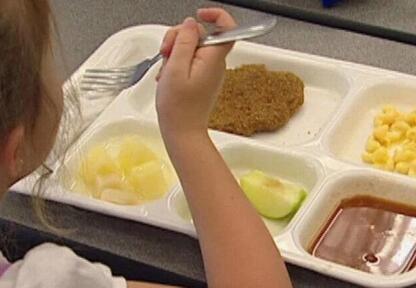In Illinois, the return to school signifies more than just academics—it’s a crucial period for ensuring food stability for thousands of children who rely on free and reduced lunch programs. Over the past school year, approximately 180 million free or reduced meals were distributed across the state, highlighting the vital role these programs play in supporting students’ nutritional needs.
State Superintendent of Education Dr. Tony Sanders emphasized the importance of these programs, stating, “Ensuring that every child has access to nutritious meals is fundamental to their growth, learning, and overall well-being.”
Starting this academic year, the eligibility criteria for these meal programs have been updated to accommodate more families in need. Families with incomes up to 130% of the federal poverty guideline qualify for free meals, while those at up to 185% can receive reduced-price meals. This adjustment aims to expand access to nutritional support for a broader range of students and families across Illinois.
The federal poverty guidelines, which vary based on family size, determine eligibility for these meal programs. Families are encouraged to complete meal applications at the beginning of each school year to ensure their children can benefit from these essential services.
These programs not only alleviate financial burdens for families but also contribute significantly to students’ overall well-being and academic performance. By providing consistent access to nutritious meals, schools in Illinois foster an environment where children can thrive both academically and physically.
The impact of these programs extends beyond the school grounds, positively influencing communities by promoting health and educational equity. As Illinois continues to prioritize the nutritional needs of its students, these initiatives play a crucial role in supporting families facing economic challenges.
Also Read:
- Locked Pouches Required for PPS Students’ Phones This School Year
- Allegations of Bias as Students Face Tickets for Misbehavior in Illinois Schools
In conclusion, the expansion of free and reduced lunch programs in Illinois reflects a commitment to ensuring that every child has access to essential nutritional support. By broadening eligibility criteria and maintaining a focus on student well-being, Illinois schools are paving the way for healthier, more equitable educational environments statewide. These efforts not only strengthen educational outcomes but also foster a sense of community support and well-being for families across Illinois.





